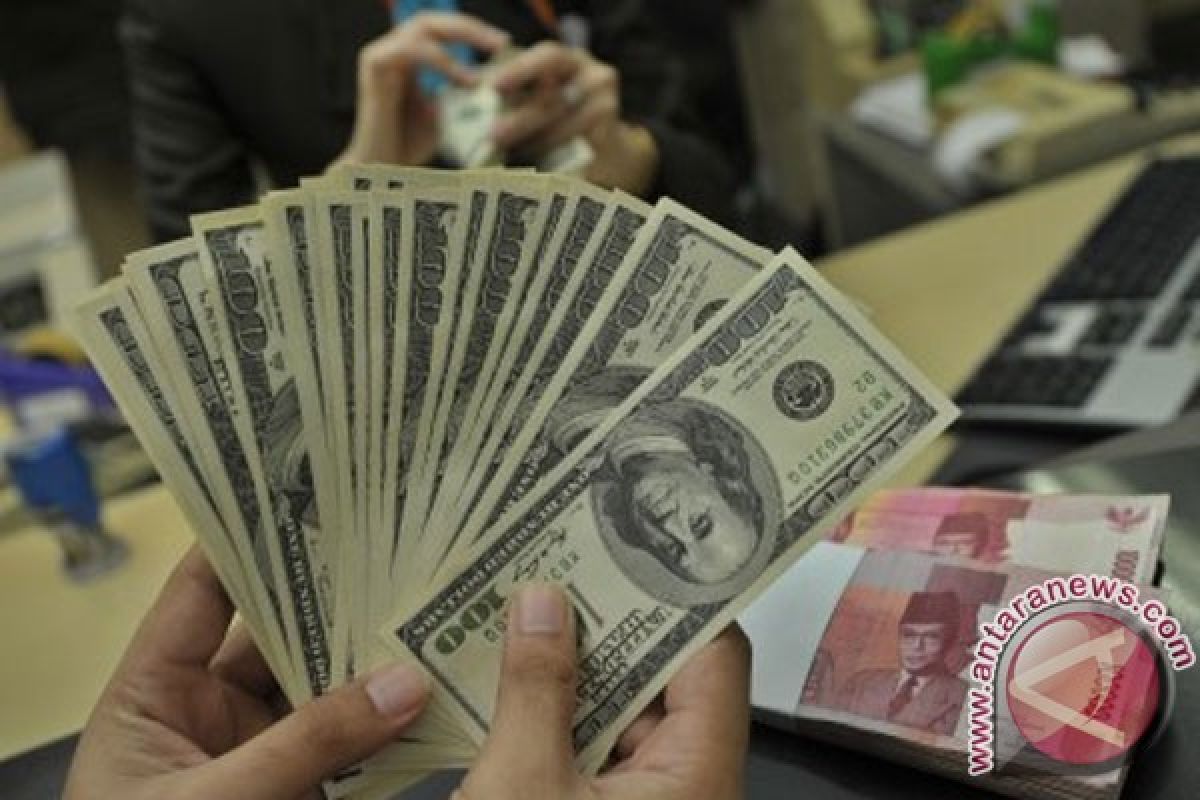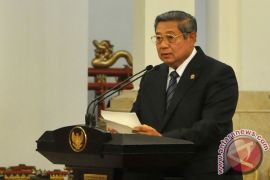President instructed the finance minister to discuss with the Bank of Indonesia, LPS, and OJK the formulation of a policy in response to the upheaval through the Financial System Stability Forum, as well as to find ways to minimize its impactJakarta (ANTARA News) - President Susilo Bambang Yudhoyono has been keeping a close watch on the composite share price index and the rupiah exchange rate.
"He has also instructed the finance minister to discuss with the Bank of Indonesia (central bank), LPS (deposit insurance agency), and OJK (financial service authority) the formulation of a policy in response to the upheaval through the Financial System Stability Forum, as well as to find ways to minimize its impact," Presidential Special Aide for Economic and Development Affairs Firmansyah said here on Tuesday.
The President gave those orders because speculations about a possible tapering of the US Federal Reserve`s quantitative-easing policy have negatively affected many regional currencies and stock price indexes, including the rupiah and the Indonesian composite index.
Meanwhile, Arif Budimanto, a member of the House of Representatives Commission IX from opposition Indonesia Democratic Party Struggle (PDIP), said the rupiah is vulnerable to wild exchange-rate fluctuations and is continuing to depreciate against the US dollar, particularly because there is no synergy between fiscal and monetary policies.
The government`s continued reliance on Bank Indonesia for controlling the rupiah`s movement could put an increasingly heavy burden on the central bank and lead to further depletion of its foreign exchange reserves, he continued.
Budimanto noted that Indonesia`s current account deficit has widened, reaching an all-time record of 4.4 percent of the gross domestic product (GDP) in the second quarter.
The deficit developed because the government supported upstream industries through a fiscal policy, while exporters were not encouraged to bring in foreign exchange through increased exports.
"The rupiah`s depreciation was the sharpest in comparison to that of other currencies in the ASEAN region," Budimanto pointed out.
The currency will continue to depreciate unless the trade deficit is narrowed, he said.
The decline value of export products and rising imports are proof that the government has failed to match national productivity with domestic consumption, Budimanto continued.
He also pointed out that economic growth has so far been driven by domestic consumption, making seasonal inflation an annual phenomenon, which has led to the spike in living costs.
"Therefore, fundamental and structural steps must be taken," Budimanto said, adding that the rupiah must be controlled not by curbing credits but by regulating the national cash flow.
"BI should consider relaxing its rules relating to the foreign exchange market, such as banks` foreign commercial borrowing and hedging, among other things, to attract capital inflows," he stated.
Meanwhile, economic observer Ryan Kiryanto expressed belief that the current decline in rupiah and the Indonesia Stock Exchange index will be temporary, and that both will rebound in the future.
"I think we cannot say that the economy is in danger just because the IHSG index and the rupiah exchange rate have dropped significantly of late," he told Antara on Tuesday.
Kiryanto said the country`s economy is still healthy, adding that the economy would be in danger if there was no growth in economic activities.
"I am convinced the rupiah and IHSG will rebound," he added.(*)
Editor: Heru Purwanto
Copyright © ANTARA 2013











